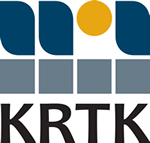
Description of the RI
The KRTK Databank maintains the largest collection of social and economic micro data sets in Hungary, ready for analysis. Its purpose is not to serve particular research projects but to enable a research environment and data background where the most diverse researches and analysis can be carried out in accordance with international standards. Building on these data collection, there have been more than 700 publications, 107 dissertations and numerous policy impact assessments in the past fifteen years. The number of data requests is beyond one thousand and the number of sessions in the CSO-KRTK Research Room is beyond ten thousands. Access to data is regulated in the contracts agreed with primer data owners.
Activities and Services
Acquiring databases, harmonization: Researches that meet current standards are those that use longitudinal data covering long time periods. It requires the harmonization of the purchased databases; including correction for code changes and the creation of compromising code sets. The KRTK Databank provides researchers with ready-to-use databases.
Building databases: The KRTK Databank has built three large panel datasets so far, including individual, employment, educational and health data, by linking public administrative registers. The third administrative panel (Admin3) follows five million individuals on a monthly basis between 2003 and 2017. In addition to KRTK researchers, their co-authors and students, these data can be used by outside researchers as well.
CSO-KRTK Research Room: enables researchers to use comprehensive, linkable datasets under remote control; datasets contain individual and enterprise-level data dating back to 1970
KRTK Dataroom: started operating in 2021; researchers can analyze data in a way that meets the requirements of leading international journals in terms of research ethics and principles of data usage
Laboratory: established in 2018 with 40 end-points for conducting social science experiments
Stata course and Internship: young researchers are offered internship where they can learn how to use Stata and are given the opportunity to participate in ongoing research projects
Big Data: in 2021, the KRTK Databank has expanded with a Social Science Computing Group which uses Big Data methods for data collection and creates researchable datasets
Single sited
Databank of Centre for Economic and Regional Studies
Budapest
Fully operational, 2005-
- Hungarian Central Statistical Office
- Centre for Social Sciences
- Corvinus University Budapest
- TÁRKI Zrt. Databank
- SZTAKI Institute for Computer Science and Control
INTERNATIONAL COLLABORATION
with RIs
- Global Labor Organization
- Duke University
- University College London
- Harvard University
- KU Leuven
- British Columbia University







